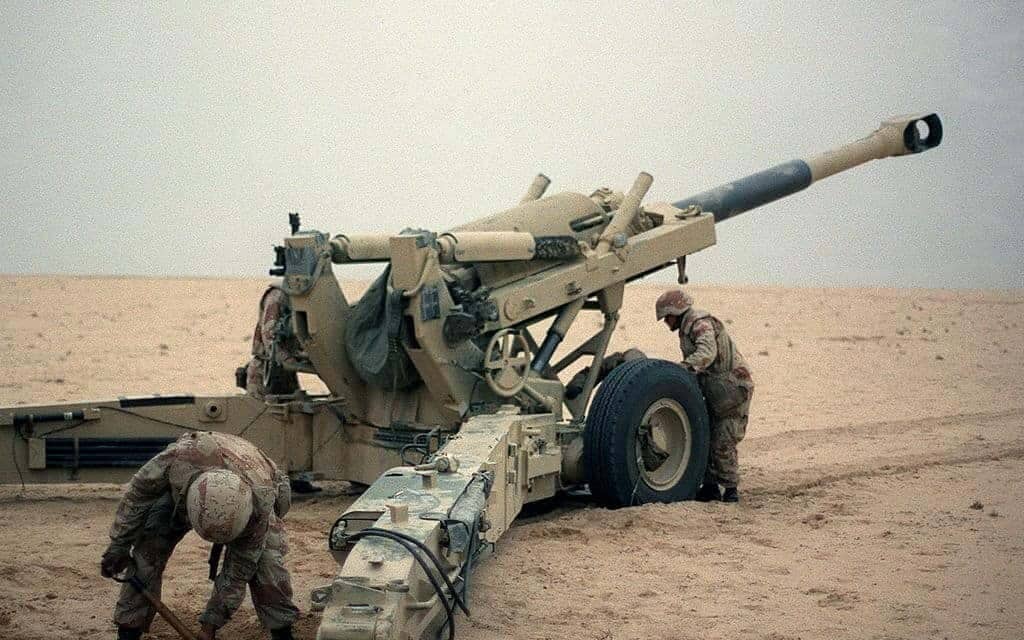On this day in 1991, the First Gulf War began. The United Nations had earlier issued a deadline for the withdrawal of Iraqi forces from Kuwait. In August 1990 the Iraqi army under the orders of the dictator Saddam Hussein had invaded the country and occupied it. The UN had ordered them to leave Kuwait and also empowered the Americans and their allies to prepare for a military operation to eject the Iraqis from Kuwait.
Shortly after the Iraqis had ignored the deadline the Pentagon ordered the first air attacks on the Iraqi army, air force, and navy. The US were joined by British, French and other coalition aircraft. The first wave of attacks targets Iraqi positions and units in both Iraq and Kuwait.
The coalition aircraft launched waves of bombers and fighter-bombers from airstrips in the Saudi Arabian desert. The Pentagon also ordered the US navy to fire state of the art cruise missiles at Iraqi targets. The air and missile attacks were the first stages in Operation Desert Storm. Shortly after the attack began President George Herbert Bush made a televised appearance and explained why the coalition had launched the attacks. The overall commander of Desert Storm was General Norman Schwarzkopf and his force contained units, planes, and ships from 32 nations.

The majority of the coalition came from western Europe and the Middle East. Fr six weeks the coalition air force attacked the Iraqi army and other targets including political, economic and infrastructure targets. The Iraqi air defenses were not really effective and the Iraqi air force was no match for the allies. The Iraqi army was constantly bombarded. The elite Republican Guard was regularly bombed by the gigantic B-52s who dropped thousands of tons of explosives on their positions.
Iraq fired SCUD missile attacks against Israel and Saudi Arabia, but they did not cause much damage and only resulted in a limited number of casualties. On February 24, a massive coalition ground offensive began. The coalition used tanks and helicopter gunships to overwhelm the poorly armed and led Iraqi army. The Pentagon send troops into Southern Iraq to outflank the Iraqi army in Kuwait.
The Iraqi army was in disarray after the weeks of bombing and was soon overwhelmed. On February 28th, the US President. Bush declared a cease-fire. Iraq agreed to withdraw completely from Kuwait. The war was considered to be a great victory for America and her allies. The coalition had lost only 240 men while the Iraqi army had possibly lost tens of thousands of men.

